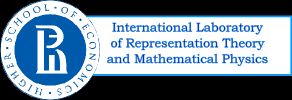|
|
|
Organizing Committee
Leonid Chekhov (Steklov Math. Inst., Skoltech, and Poncelet),
Program Committee
Andrei Marshakov (LPI, HSE, Skoltech) In the last two decades a substantial progress occurred in the fields of Random Matrix Theory (RMT) and Quantum Information (QI); in RMT this progress was mainly die to the appearance of Topological Recursion (TR)---a procedure that enables constructing asymptotic expansions in a number of models on the base of fairly minimalistic input: a spectral curve endowed with two meromorphic differentials. This technique was successfully applied to exploiting such different objects as topological vertices in string theories and generating functions for cohomological field theories, but still not to objects of QI. Why we might expect a connection? First, quantum generalizations of spectral curves and corresponding algebro-geometric objects were constructed by L.Chekhov, B.Eynard, and O.Marchal and by M.Mulase, P.Sulkowski, S.Shadrin and collaborators. But the direct link to QI is still missing. On the other hand, there is a community (led mainly by G. Aubrun, B.Collins, and I.Nechita) developing relations between RMT and QI, but their results seem to be somehow detached from the TR community studies. Other indications of possible connections pertain to sequences of unitary transformations entering the both theories (Quantum Information -- in variants of the Shor's algorithm; Topological recursion -- in canonical Bogluibov--Givental transformations relating different models). The idea of the meeting is to establish and strengthen links between the two actively developing fields of knowledge: Quantum Information and Random Matrix Theory in its modern disguise of Topological Recursion. The conference format is thought to be mainly as a school for Phd students and postdocs in a form of a series of lectures by senior researchers. For younger participants we can provide accommodation on a double-room basis; travel in most occasions is supposed to be paid by their institutions. Key speakers include: Alexandr Holevo (Steklov Math. Inst., Moscow), Ezra Getzler (Northwestern Univ., Chicago), Sergei Nechaev (Poncelet Lab., Moscow), Ion Nechita (Toulouse Univ.), Piotr Sulkowski (Warsaw Univ. and Caltech), and others We expect short series
(2-3) of 1-hour-long lectures, 1-hour long research talks, and
shorter 30-minutes talks of younger researchers. For a limited number of participants,
the organizers will provide accommodation paid by the Skoltech grant.
All nationals except for
some countries of the FSU need visas to enter For the registration,
please, contact the Organizing Committee at the earliest opportunity.
It will be extremely helpful if you include a tentative
title of your talk. Contact email of the
organizing committee chekhov@mi.ras.ru (Leonid Chekhov) Go to the Laboratoire
Poncelet home page. to the Skoltech Center for Advanced Studies home page. |
|
|
Site design by Paul Zinn-Justin |
|




